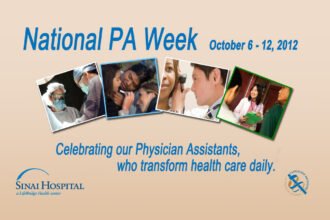The concept of working from home — or at least, working remotely — has stirred a great deal of interest in recent years. Sparked by developments in technology, and a desire to become more flexible in our working lives, many now seek to enjoy the benefits of remote work. Medical professionals and healthcare staff regularly look for opportunities to work from home. Many doctors are calling for remote work to become a greater feature in the healthcare landscape. But is remote work something that is possible for you to achieve? A high-impact area of employment, with complex systems and sensitive information being shared, is there really space for home working in the medical profession? Why Take up Remote Work in the Healthcare Profession In the same report that highlighted doctors’ calls for remote work, data was uncovered about why they think working from home would be beneficial:
- 43% of workers believe that remote work would allow them to see more patients and boost efficiency
- A further 48% said they thought remote working would lead to better patient care
This makes perfect sense. Remote working allows you to become more mobile and move around within your community, as well as offer services out of your own home and increase flexibility in terms of how and when you work. Through this, doctors, nurses and other support staff are capable of developing strategies of care that move beyond treatment within a practice. Another benefit is that it could entice staff into the healthcare sector. The general workforce is hungry for remote work, which is why job sites are filling up with new healthcare roles that feature work-from-home responsibilities. People want flexibility in their employment. In the healthcare sector, where jobs are going unfilled, any means of employee attraction can be seen as something to strongly consider. Remote work has been shown to improve retention across a range of industries, helping to keep medical staff in their roles once they’ve been filled. Making the Most of Remote Work: Turning Pain Points into Advantages Remote work within healthcare clearly has its benefits, but does that mean it has a place? There are blockers that you may face when adapting to mobile practices, but by taking the correct steps, these blockers can also easily be overcome and actually develop into advantages for your healthcare organisation. Before you take actions to introduce remote working opportunities, there are some key considerations you should be thinking about. Here we discuss potential problems and risk factors, and, more importantly, how you can turn them into beneficial factors: Fax Reliance Unfortunately, old-fashioned fax machines are alive and well in the healthcare industry. Old-fashioned, outdated and “downright dangerous”, they are still used in their thousands across the industry. This means you need a fax machine in order to receive and send important documents. A fax machine is not a portable device, which hampers your ability to work remotely. In order to work effectively in a remote setting, you must be able to communicate without hindrance. With faxing a fixture of the healthcare environment, you need a viable alternative to keep information flowing. Online faxing provides a solution. A portal that works on smart devices and computers, online faxing enables you to send and receive fax documents without the need for a fax machine. It also lets you access all documents stored on your digital platform through a centralised fax management system while on the move, and allows for documents to be submitted from emails as well. Introduction of this technology not only allows you to keep your healthcare organisation’s communication channels open wherever you are, but it also revolutionises your internal fax transmission structure. Integration occurs across your entire chain of document sharing platforms, adapting your outdated fax submission methods for the digital era and leading to more efficient and cost-effective faxing. How does it do this? It enables you to remove fax machines completely and transmit all documents via the cloud-based technology. Moving to online faxing supports the future-proofing of your healthcare organisation. Data Compliance Data protection a serious consideration for anyone in the possession of personal information — something that you may carry a great deal of. Remote work means sensitive documents are being accessed and acquired outside of controlled working environments, which could potentially result in breaches of compliance. When working remotely, your files must be locked down. Whether at home or on patient visits, you need to keep your documents secure from unauthorised access. Files should not be paper — they are simply too vulnerable. Instead, you should keep remotely accessed files on devices with passwords and encryption, and secured by software that has access control. This is your best defence against problems with data protection compliance. New digital advancements, such as the online faxing solutions mentioned above, can offer this kind of security. By incorporating these necessary practices into your remote work, you can also bolster the data protection compliance of your entire healthcare organisation, as these practices allow you to remove or reduce risk factors related to data protection. The result is, by being forced to change the way you operate to adapt to remote working — including making all communications digital and cutting out vulnerable paper-based file sharing — you can actually see advantages for data protection compliance across the board. Document Security Remote work takes documentation out and puts it into contact with new individuals. These may be family members or friends, patients or even strangers. The basic principle is that when documents leave your practice, they are exposed to risks of unauthorised access. This may sound like scaremongering, but don’t be fooled. Many instances of documents being accidentally left where they shouldn’t be have occurred, as have thefts from homes and bags, etc. This not only presents risks to patient confidentiality and security, but it also puts you — the remote worker — at personal risk. Many of these problems are simply down to lack of awareness and forethought. 80% of data breaches and compliance issues are caused by human error. Regulations and training must become a part of your remote working strategy. Active training programmes around keeping documents safe, practices that support data protection compliance, and rules surrounding what can and can’t be accessed while carrying out remote work, help to produce a secure work environment and reduce risk factors that may hinder remote work. They also help to reduce risk factors in other areas of your healthcare organisation. The advantage of having to think more carefully about your working practices as you move towards a remote system is that it may also allow you to highlight other weaknesses in document security that you may have previously missed. This can lead to better protection and management of sensitive or confidential data. Moving Ahead with Remote Working in Healthcare Moving to remote work in healthcare presents a myriad of benefits that support better opportunities for patient care, job satisfaction and organisation growth. Adapting to this more flexible and mobile working style may require investment in the right tools, but the advantages and rewards you’ll experience are certainly worth the additional time and effort to establish.








